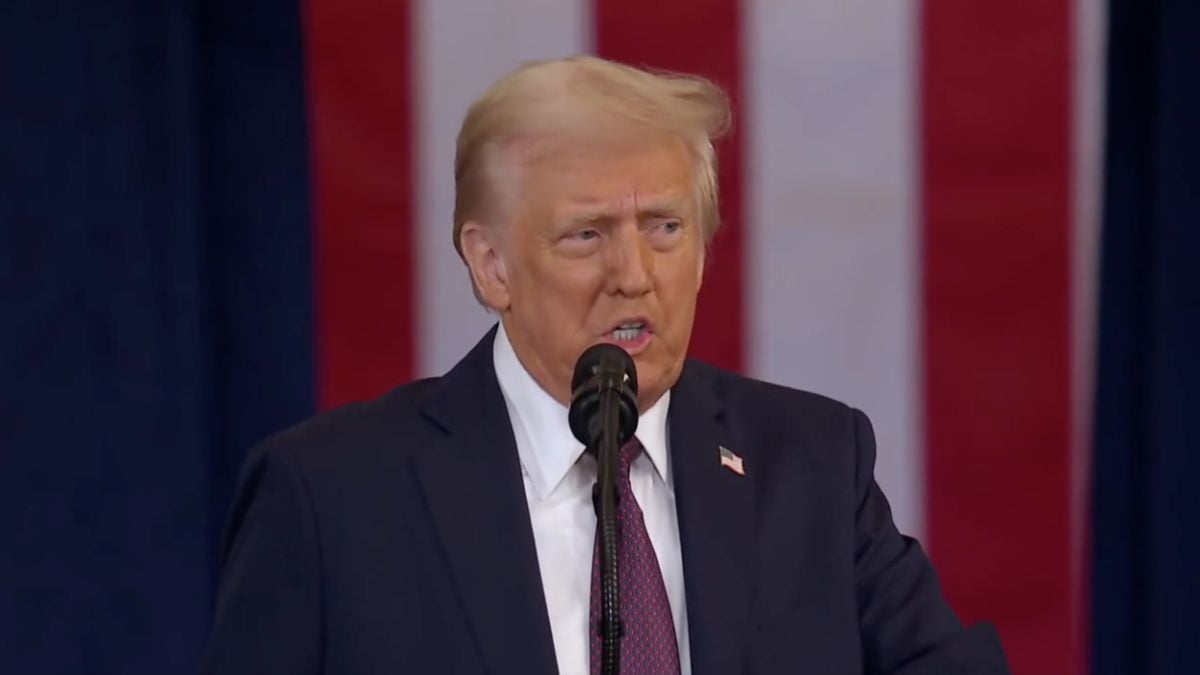
President Donald Trump reiterated that his plan to impose a tariff on Mexican automobiles is still in motion and could take effect on April 2. According to his statements, the tax would be around 25%, although the final details will be revealed on the mentioned date.
What did Trump say about the tariff on Made in Mexico cars?
Trump stated that the levy on the Mexican automotive industry would be 25%, although he left the possibility of adjustments open. “I will probably announce it on April 2, but it will be around 25%,” declared the former Republican president, reaffirming his intention to implement this measure, which had already been announced on February 14.
Trump’s proposal has generated reactions in both the United States and Mexico, as the automotive sector is one of the key industries in the trade relationship between the two countries.
If the 25% tariff takes effect on April 2, the Mexican automotive industry could face serious challenges. Mexico is a key exporter of vehicles to the United States, and an increase in costs could impact both manufacturers and consumers.
Companies in the sector have expressed concerns about the impact such measures could have on competitiveness and industry stability. As the official announcement approaches on April 2, the market remains on edge regarding the possible economic repercussions.
READ ALSO. Where and at what time to watch the interview of Donald Trump and Elon Musk live?
Trump signs new executive orders
On the same day, Trump also signed two executive orders and a presidential memorandum, actions confirmed by a White House official.
One of the orders focuses on the accessibility and affordability of fertility treatments, including in vitro fertilization. The second order is related to the U.S. Office of Management and Budget.
Meanwhile, the presidential memorandum aims to impose greater transparency requirements on departments and government agencies. “Imposing radical transparency requirements on departments and government agencies” was one of the goals highlighted by a White House advisor when presenting the document to the press.
How much will car prices increase with Donald Trump’s tariff?
The automotive industry heavily depends on imported auto parts. 50% of auto parts used in vehicle manufacturing in the United States come from Mexico and Canada. An analysis by Michael Hicks, an economist at Ball State University in Indiana, reveals that price increases could impact as follows:
- Sedans: Estimated increase of $2,000 per unit.
- SUVs and trucks: Models with more electronic components could see price hikes of up to $5,000.
- Fewer options for consumers: Supply chain disruptions could reduce the availability of new cars.
Tariffs, a heavy blow to consumer economy
A tariff will generate a widespread increase in prices, affecting household economies in the U.S. Some of the anticipated consequences are:
- Drop in imports: New tariffs are expected to reduce imports by 15%, affecting the availability of goods and market competition.
- Impact on inflation: Additional costs will be passed on to consumers, driving up prices of key products such as cars, food, and gasoline.
- Higher tax revenue but at a high cost: While tariffs will generate around $100 billion annually in additional revenue for the federal government, the economic damage could be greater due to supply chain disruptions and job losses.
- The Federal Reserve estimates that businesses exposed to tariffs have reduced their workforce by 1.4% and increased prices by 4.1%.
- The Tax Foundation estimates that tariffs will generate $1.2 trillion in tax revenue between 2025 and 2034, but in the long run, they will reduce the U.S. GDP by 0.4% and eliminate 344,900 jobs
⇒ WE INVITE YOU TO FOLLOW US ON GOOGLE NEWS










